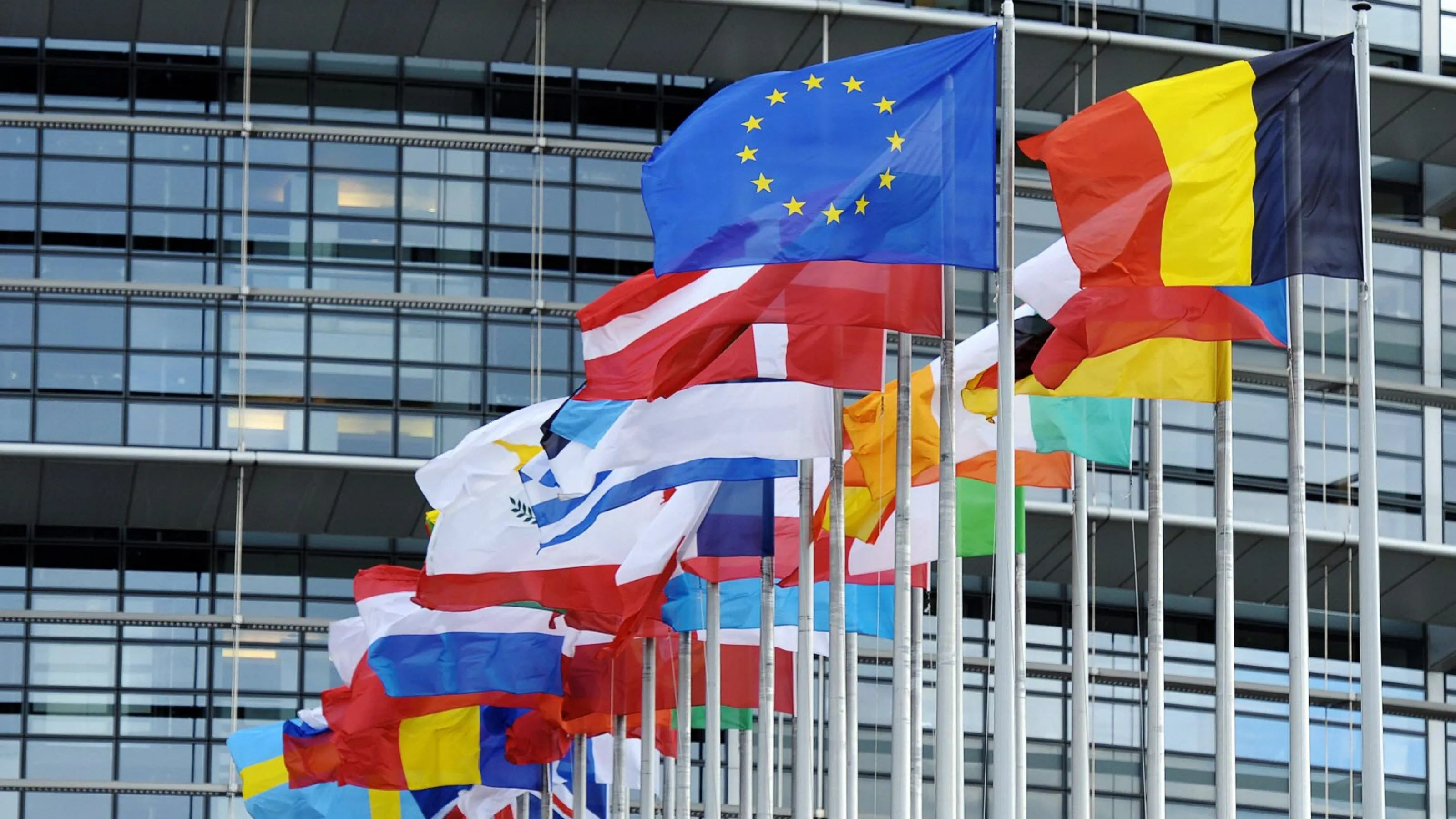Brussels could hit Big Tech in trade spat. But how?
BRUSSELS — The American tech sector has a big, fat target on its back as Europe looks to respond to Washington on tariffs. If only Brussels agreed on how to hit it.
As United States President Donald Trump rolled out a roster of tariffs late Wednesday, European top officials and lawmakers noted that Big Tech firms and digital services could be Washington’s Achilles heel.
The European Union has a €157 billion trade surplus in goods, which means it exports more than it imports, but it runs a deficit of €109 billion in services, including digital services. Big Tech giants like Apple, Microsoft, Amazon, Google and Meta dominate all sorts of parts of the market in Europe.
European Commission President Ursula von der Leyen mentioned technology as one of the “cards” the bloc can play when she addressed the looming tariffs in a European Parliament session on Tuesday.
But the EU is conflicted on what to do about it.
Its flagship tech laws like the Digital Markets and Digital Services acts (DMA and DSA) aren’t designed to serve as retaliation tools. Attempts to slap higher taxes on tech giants previously failed. Governments could decrease their spending on Big Tech firms by revising public procurement policies, but in many cases Europe doesn’t have its own alternatives to turn to instead. And some capitals, like Dublin, are already warning that hitting U.S. tech would badly damage the bloc’s own economy.
Directly targeting Big Tech is all but certain to trigger the ire of tech CEOs like Elon Musk, Jeff Bezos and Mark Zuckerberg, who have cultivated close ties with Trump.
Europe could also deploy its strongest trade weapon yet, the Anti-Coercion Instrument, to target U.S. tech firms specifically. But as a tool the ACI is untested: It was designed as a “trade bazooka” following the first Trump administration from 2017 to 2021 and has never been used.
Laws versus trade wars
The EU has yet to land some of the landmark probes it has been conducting under the DMA (on digital competition) and DSA (on content moderation).The Commission is set to fine Apple and Meta for violating digital competition rules, the first such fines to be issued under the DMA, late this week or early next week.
Brussels has also found Elon Musk’s X in preliminary breach of the EU’s content moderation rules, which could result in fines of 6 percent of the company’s annual global turnover. Meta is also under investigation under the same rulebook.EU officials have been at pains to stress that enforcement under these laws shouldn’t be considered part of a trade war.
“The DMA is not a bargaining chip,” said French Renew lawmaker Stéphanie Yon-Courtin. “This regulation is conceived to establish fair rules of the game in Europe, not to be leveraged in a trade agreement with the United States.
”The lead lawmaker on the DMA, Andreas Schwab of the center-right European People’s Party (EPP), said the Commission should have been quicker to issue its imminent decisions on Apple and Meta, precisely to show that “there is nothing political about them.
”The core argument is that the EU’s tech laws exist to uphold European values, not to discriminate or to target a given country. Any suggestion to the contrary could hurt the Commission when Big Tech firms inevitably litigate the first fines and penalties under the laws.
Washington, however, has suggested the opposite. The Trump administration in February threatened retaliatory tariffs against the EU tech regime specifically, citing perceived risks for U.S. companies and freedom of expression.
Wednesday’s tariff announcements from the White House have reupped calls for Brussels to pull the trigger on investigations under the rulebooks.
Since Trump is “open for negotiations, I fear that he will try to use the digital services as a negotiating tool. But I hope the European Commission will be firm,” Danish socialist MEP Christel Schaldemose said.
Greens lawmaker Alexandra Geese agreed: “Let’s strongly enforce DSA and DMA.”
Taxes and levies
Proponents of a bullish response to Trump’s tariffs see several other forms of retaliation: slapping higher taxes on digital services, and excluding U.S. tech firms from bidding for government contracts.
Brando Benifei, a social democrat lawmaker who leads the Parliament’s delegation to the U.S., flagged the need for “broad countermeasures that hit where it really hurts,” with “targeting services, such as big tech firms,” as one option. In a written comment he suggested retaliating against intellectual property rights or excluding U.S. companies from public procurement.
Digital services will “inevitably come into focus,” said Finnish EPP lawmaker Aura Salla, who is also a former top lobbyist for Meta in Brussels.
EPP President Manfred Weber said on Tuesday that the “digital giants only pay little to our digital infrastructure where they benefit so much.”
Some EU countries are adding to the chorus. On Thursday French government spokesperson Sophie Primas said the EU’s next wave of retaliation could target “digital services that are currently not taxed.”
French liberal European lawmaker Sandro Gozi, meanwhile, mentioned “taxing American digital giants” as among the options.
The issue of a digital services tax has been simmering for a while in the EU, but the bloc’s 27 member countries have no unanimity on the issue, and taxation policy requires all EU countries to agree on joint policy.
Some member countries have thus gone solo. Most recently, Belgium’s ruling coalition deal contained an agreement to install a digital tax by 2027 if there’s no deal at the international or EU level.
Ireland, the European home base of several U.S. Big Tech companies, pushed back right away on Tuesday. Targeting U.S. digital services is not the EU’s position, said Irish Trade Minister Simon Harris, adding it could be very damaging for Ireland.
Pieter Haeck, Mathieu Pollet, Eliza Gkritsi
 Stéphanie Yon-Courtin
Stéphanie Yon-Courtin



